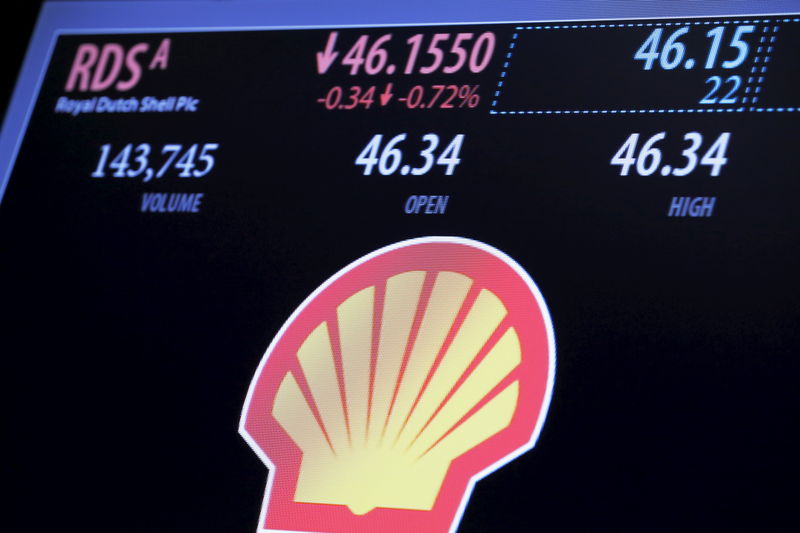By Geoffrey Smith
Investing.com -- When Royal Dutch Shell (LON:RDSa) cut its dividend for the first time since the Second World War earlier this year, the move appeared highly symbolic – an acknowledgement that the Covid-19 pandemic had changed the outlook for Big Oil not just for the current cycle, but forever.
But fast forward six months, and – lo, and behold! – Western Europe’s biggest oil and gas major is hiking its dividend again, with promises of more to come in future years. The payout was raised by 4% to 16.65 cents for the quarter, and CEO Ben van Beurden promised further increases in future.
Talking to Bloomberg TV, van Beurden touted the move as evidence of a successful ‘reset’, which has seen the company slash it capital spending budget from over $25 billion to less than $19 billion and pare back operating costs with similar aggression.
With costs reset at a lower level, van Beurden argued that the company can still pay a higher dividend and cut net debt, which had leaped in the second quarter. In the three months through September, net debt fell to $73.5 billion, while gearing, which tracks debt against equity levels, fell to 31.4% from 32.7%.
The company reckons a net debt level of around $65 billion is commensurate with an AA debt rating that would allow it to borrow at rock-bottom rates for the foreseeable future, so evidence of progress to that level is clearly important.
But is it sustainable? Two arguments that suggest it is are that the company remains convinced of the future of liquefied natural gas, where it is one of the world’s dominant players, and which it sees growing at 3%-4%. Another is the progress it has made reorienting its downstream activities away from sub-scale refineries in Europe and other slow-growth regions. Van Beurden said that the handful of refineries that it keeps will be fully integrated into more viable product lines such as biofuels and petrochemicals.
Another reason for optimism is the – so far clear – determination of OPEC and its allies to risk a rerun of the debacle in the spring. While it hasn’t yet confirmed the move, the latest tightening of public health measures in Germany, France and much of the rest of Europe make it all but certain that the increase of 2 million barrels a day of output, scheduled for the start of next year, will be pushed back, supporting crude prices.
Last but not least – it’s not just Shell that is taking such action. Equinor, the Norwegian state-controlled major that is absolutely nobody’s idea of a red-blooded capitalist machine hell-bent on maximizing short-term returns, also said it would raise its dividend on Thursday, despite a decline in quarterly profit.
Even so, it’s hard to rid oneself of the suspicion that the move smacks of desperation. The record profit on fuel sales was due to exceptional weakness in crude prices in spring, and that will be hard to replicate. Moreover, global fuel demand is still running 15% below year-earlier levels (according to BP (NYSE:BP)), and global demand is set to peak much earlier than was expected before the pandemic. Even gas will find it increasingly hard to compete with renewables in the power space as technological improvements reduce its current price advantage.
Shell’s fall from grace with dividend investors in the third quarter was brutal, and the stock is still down 60% this year despite a 2% rebound on Thursday. At the new level, the dividend yield is an implicit 4.74%. That’s still well below where it was pre-Covid, but at least back up to a level that institutional investors could see as a good entry point - if they can bring themselves to forgive van Beurden for the earlier carnage.
